Plushkin
Plushkin: character history
Going for the souls of dead peasants, the protagonist of the poem "Dead Souls" did not even imagine what bright personalities he would meet. In all the variety of characters in the work, the miser and miser Stepan Plyushkin stands apart. The rest of the rich in literary work are shown statically, and this landowner has his own life story.
History of creation
The idea that formed the basis of the work belongs to. Once a great Russian writer told Nikolai Gogol the story of a swindle that he had heard during his exile in Chisinau. In the Moldovan city of Bendery, in recent years, only people of military ranks have died, ordinary mortals were in no hurry to the next world. The strange phenomenon was explained simply - hundreds of fugitive peasants from the center of Russia fled to Bessarabia at the beginning of the 19th century, and during the investigation it turned out that the "passport data" of the dead were appropriated by the fugitives.
Gogol considered the idea to be brilliant and, on reflection, invented a plot in which the main character was an enterprising person who enriched himself by selling "dead souls" to the board of trustees. The idea seemed interesting to him because it opened up the opportunity to create an epic work, to show through a scattering of characters all of Mother Russia, which the writer had long dreamed of.
Work on the poem started in 1835. At that time, Nikolai Vasilyevich spent most of the year abroad, trying to forget the scandal that erupted after the production of the play "The Government Inspector". According to the plan, the plot was to take three volumes, and in general the work was defined as comic, humorous.
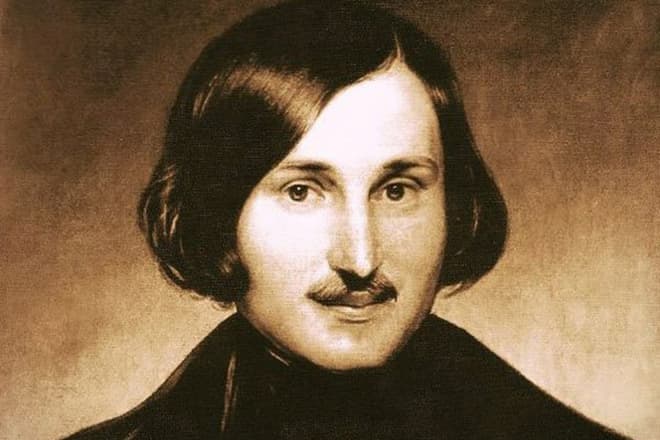
However, neither one nor the other was destined to come true. The poem turned out to be gloomy, exposing all the vices of the country. The author burned the manuscript of the second book, but did not start the third one. Of course, in Moscow they flatly refused to publish a literary work, but the critic Vissarion Belinsky volunteered to help the writer, clamoring with the St. Petersburg censors.
A miracle happened - the poem was allowed to be published, only on the condition that the title acquire a small addition to divert attention from the serious problems raised: "The Adventures of Chichikov, or Dead Souls." In this form, in 1842, the poem went to the reader. Gogol's new work was again at the epicenter of the scandal, because the landowners and officials clearly saw their images in it.
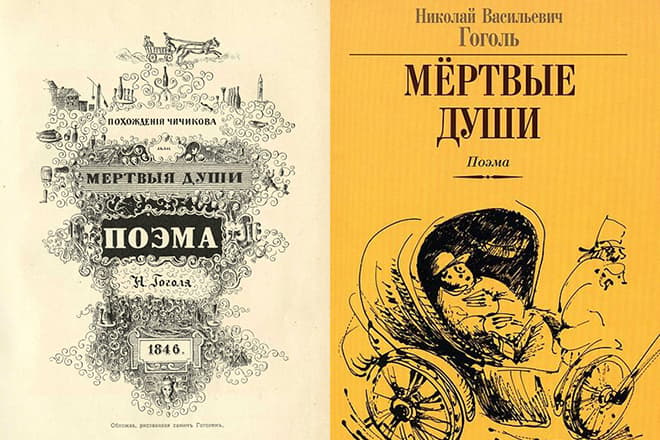
Gogol hatched a brilliant idea - first he showed the shortcomings of Russian life, then he planned to describe the ways of resurrecting "dead souls". Some researchers associate the idea of the poem with The Divine Comedy: the first volume is “hell”, the second is “purgatory”, and the third is “paradise”.
It is believed that Plyushkin was supposed to transform from a greedy old man into a wanderer-benefactor who tries in every possible way to help the poor. But Nikolai Gogol was never able to convincingly describe the ways of the rebirth of people, which he himself admitted after the burning of the manuscript.
Image and character
The image of a half-crazy landowner in the work is the brightest of all who meet on the path of the main character Chichikov. It is Plyushkin who gives the most complete characterization, looking even into the character's past. This is a lonely widower who cursed the daughter who left with her lover and the son who lost at cards.
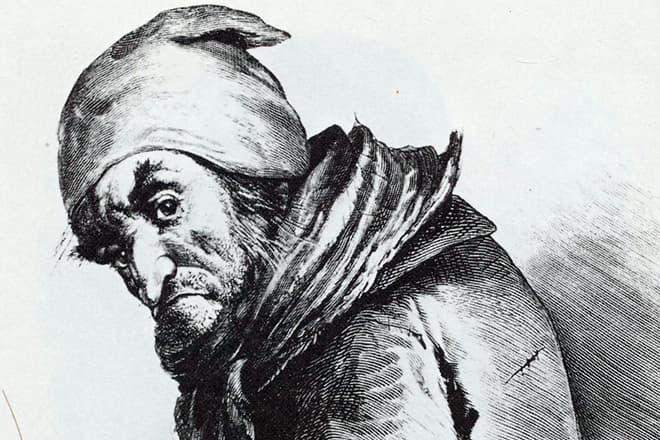
Periodically, the daughter with her grandchildren visits the old man, but she does not receive any help from him - one indifference. An educated and intelligent man in his youth, over time, turned into a “worn-out wreck”, a grumbler and a cheapskate with a bad temper, becoming a laughingstock even for the servants.
The work contains a detailed description of Plushkin's appearance. He walked around the house in a decrepit dressing gown (“... which was not only ashamed to look at, but even ashamed of”), and appeared at the table in a worn, but quite neat frock coat without a single patch. At the first meeting, Chichikov could not understand who was in front of him, a woman or a man: a creature of indeterminate sex was moving around the house, and the buyer of dead souls mistook him for a housekeeper.
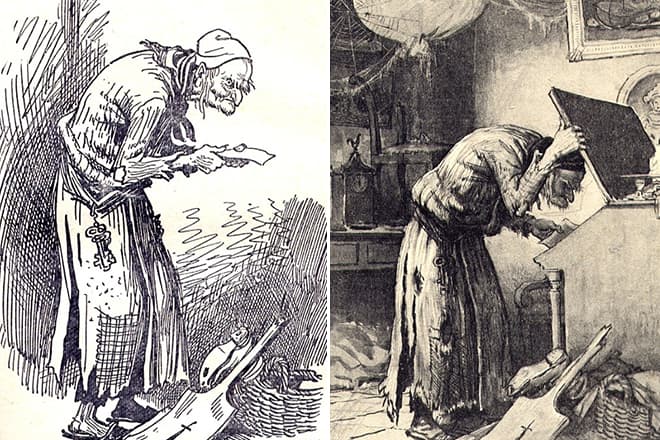
The stinginess of the character is on the verge of insanity. There are 800 serf souls in his domain, barns full of rotting food. But Plyushkin does not allow his hungry peasants to touch the products, and with dealers he is unyielding "like a demon", so the merchants stopped coming for the goods. In his own bedroom, a man carefully folds the feathers and pieces of paper he found, and in the corner of one of the rooms heaps of "good" picked up on the street.
Life goals come down to the accumulation of wealth - this problem often acts as an argument for writing essays on the exam. The meaning of the image lies in the fact that Nikolai Vasilievich tried to show how painful stinginess kills a bright and strong personality.
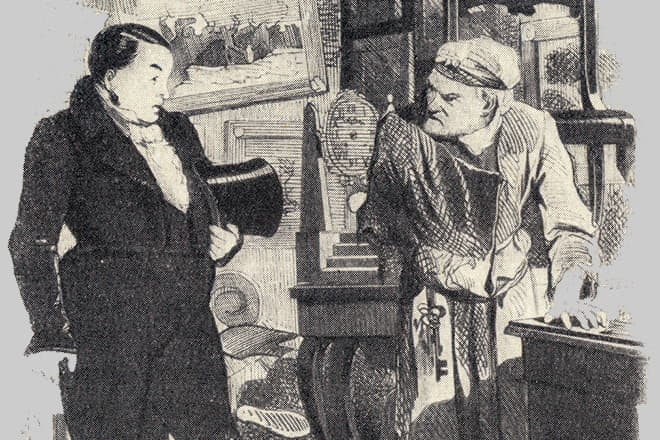
Multiplying good is Plyushkin's favorite pastime, as evidenced even by the change in speech. At first, the old curmudgeon meets Chichikov warily, specifying that "there is no use in visiting." But, having learned the purpose of the visit, the dissatisfied grumbling is replaced by undisguised joy, and the protagonist of the poem turns into a "father", a "benefactor".
In the lexicon of the miser there is a whole dictionary of swear words and expressions, from “fool” and “robber” to “devils will bake you” and “scum”. The landowner, who has lived all his life in the circle of peasants, is replete with common folk words.
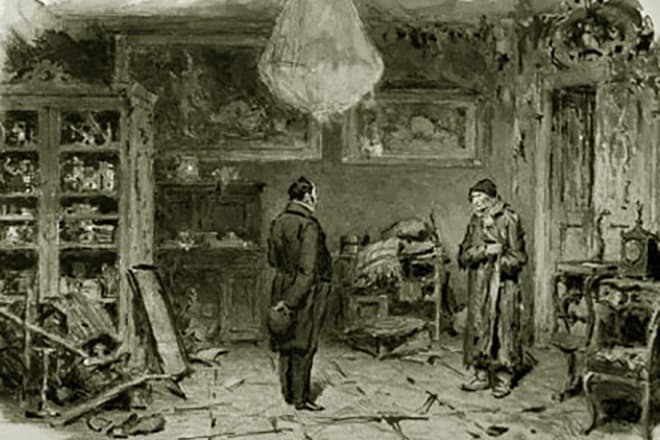
Plyushkin's house resembles a medieval castle, but battered by time: there are cracks in the walls, some of the windows are boarded up so that no one sees the riches hiding in the dwelling. Gogol managed to combine the character traits and image of the hero with his house with the phrase:
“All this fell into the pantries, and everything became rotten and a hole, and he himself turned, finally, into some kind of hole in humanity.”
Screen adaptations
Gogol's work has been staged in Russian cinema five times. Based on the story, two cartoons were also created: “The Adventures of Chichikov. Manilov" and "The Adventures of Chichikov. Nozdrev.
"Dead Souls" (1909)
In the era of the formation of cinema, Pyotr Chardynin undertook to capture the adventures of Chichikov on film. A silent short film with a truncated Gogol storyline was filmed at a railway club. And since the experiments in the cinema were just beginning, the tape turned out to be unsuccessful due to improperly selected lighting. The theater actor Adolf Georgievsky played the role of mean Plyushkin.
"Dead Souls" (1960)
The film-performance staged by the Moscow Art Theater was directed by Leonid Trauberg. A year after the premiere, the picture received the Critics' Prize at the Monte Carlo Film Festival.
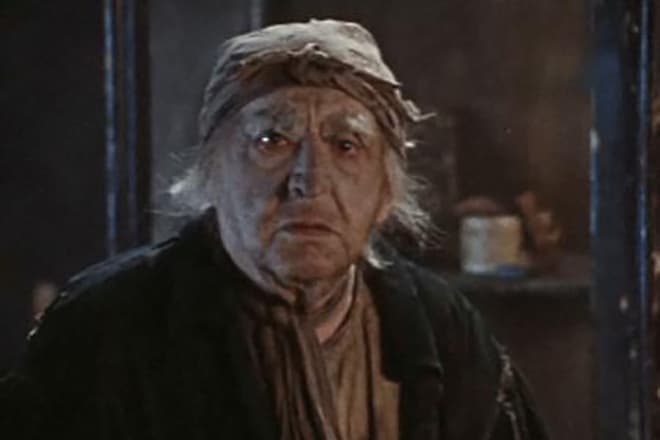
The film starred Vladimir Belokurov (Chichikov), (Nozdrev), (Korobochka) and even (the modest role of a waiter, the actor did not even get into the credits). And Plyushkin was brilliantly played by Boris Petker.
"Dead Souls" (1969)
Another television performance, which was conceived by director Alexander Belinsky. According to film fans, this film adaptation is the best of the film productions of an imperishable work.
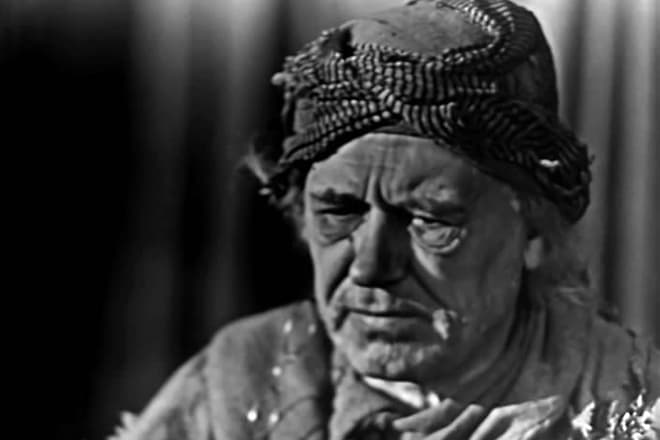
The film also features bright actors of Soviet cinema: Pavel Luspekaev (Nozdrev), (Manilov), Igor Gorbachev (Chichikov). The role of Plyushkin went to Alexander Sokolov.
"Dead Souls" (1984)
A series of five episodes, filmed by Mikhail Schweitzer, was shown on central television.
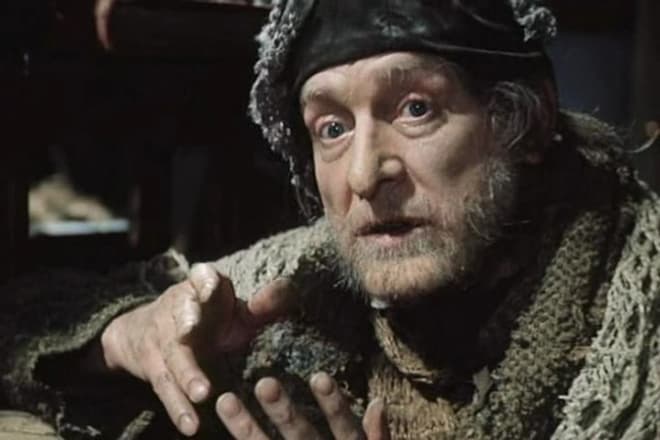
He reincarnated as a greedy landowner.
"The Case of Dead Souls" (2005)
The last film work for today, which represents a fantasy on the famous works of Gogol - "The Government Inspector", "Notes of a Madman", "Dead Souls". I decided to please the viewer with such an unusual mix, for persuasiveness, having collected the color of modern cinema on the set.
They appear on the screen in the role of Nozdrev, in the image of Chichikov, from whom the excellent wife of the governor came out. Also, the audience admires the game - the actor is called Plyushkin in the picture.
- The meaning of the character's name contains the motive of self-denial. Gogol created a paradoxical metaphor: a ruddy bun - a symbol of wealth, satiety, joyful contentment - is opposed to a "moldy cracker", for which the colors of life have long faded.
- The surname Plyushkin has become a household name. So called overly thrifty, maniacally greedy people. In addition, the passion for warehousing old, useless things is a typical behavior of people with a mental disorder that has received the name "Plyushkin's syndrome" in medicine.
Quotes
“After all, the devil knows, maybe he’s just a braggart, like all these little moths: he’ll lie, lie, to talk and drink tea, and then he’ll leave!”
“I live in my seventies!”
“Plyushkin muttered something through his lips, for there were no teeth.”
“If Chichikov had met him, so dressed up, somewhere at the church doors, he would probably have given him a copper penny. But before him stood not a beggar, before him stood a landowner.
“I don’t even advise you to know the way to this dog! Sobakevich said. “It’s more excusable to go to some obscene place than to him.”
“But there was a time when he was only a thrifty owner! He was married and a family man, and a neighbor came to him to dine, listen and learn from him about housekeeping and wise stinginess.
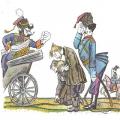 “Lefty” - a summary of the work N
“Lefty” - a summary of the work N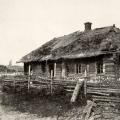 Turgenev, "Biryuk": a summary
Turgenev, "Biryuk": a summary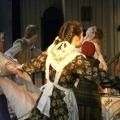 Comedy A.N. Ostrovsky "Poverty is not a vice": a summary of the work
Comedy A.N. Ostrovsky "Poverty is not a vice": a summary of the work